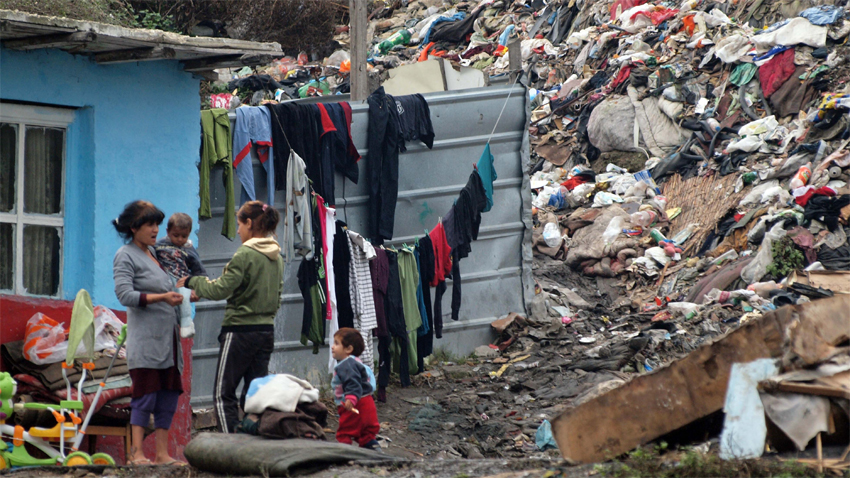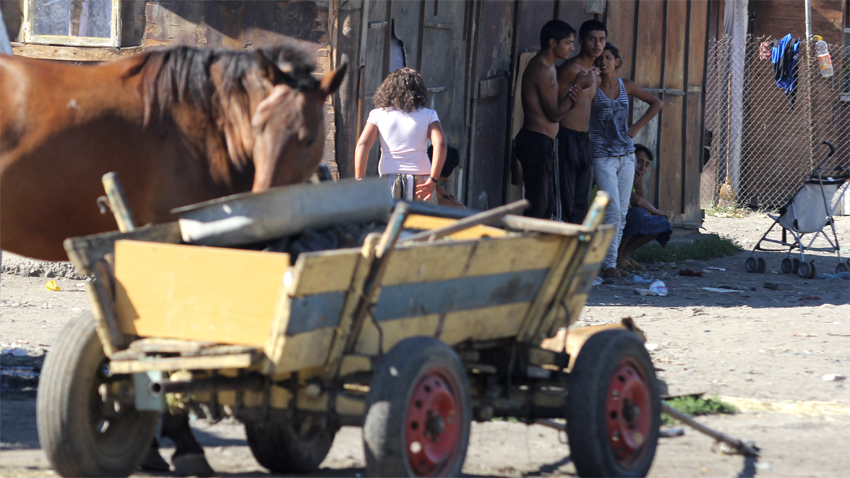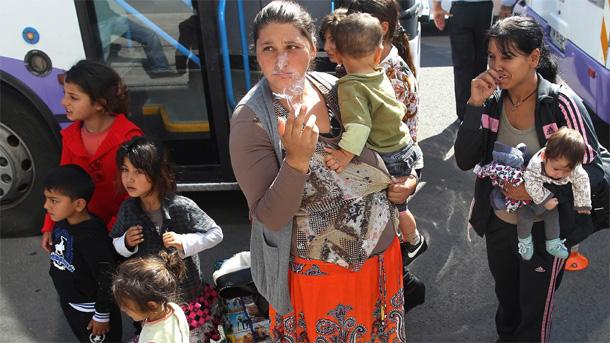A Bulgarian anecdote tells about the greatest dream of the Roma minority – to cut up and sell the Eiffel Tower as scrap metal. While this is just a joke, the truth is that in the autumn of 2013 French police arrested near Paris Roma from Romania and Bulgaria as they were stealing copper cables. Probably the most prosperous profession in Bulgaria is that of the manufacturer or retailer of keys and padlocks.
In fact, those members of society, mostly Roma who earn a living by collecting and selling as scrap metal objects, often steal from rural houses and yards, sometimes using violence. There are striking cases when one locks their rural cottage in autumn, just to find rubbles in the spring, as the walls were destroyed in order to get the reinforcing metal rods inside. After a great number of cases of violent crimes against elderly people too, the Bulgarian police finally started taking some measures. Effects, however, will be temporary as the Roma issue is extremely complex and their integration cannot be delayed.

No matter how much effort and European money is spent for the Roma integration in society, the results are not optimistic. High unemployment among the Roma leads them to desperate poverty and crime. Amid continuing demographic crisis the Roma quickly multiply but the local labor market could not use these people. The main reason is the lack of education.
A study of the Social Ministry two years ago showed that over 7 percent of Roma had never attended school. 8.3 percent have not completed their elementary education. Some 10 percent managed to finish the 4th grade but according to Bulgarian legislation these people are still illiterate, says Deyan Kolev, chairman of the Amalipe Foundation. According to him 25 percent of the Roma in Bulgaria cannot get even the lowest professional qualification.

"The number of Roma with higher education is alarmingly low. Just 0.5 percent of the Roma have graduated from a university. In comparison 25.6 percent of ethnic Bulgarians have university degree. Five percent of ethnic Turks also have higher education. According to the census of 2011, only 9 percent of Roma have secondary education, which is a very low result.”
 What can be done in this situation?
What can be done in this situation?
One way to earn a living for the Roma is in the business with scrap metals. Some 6 million euro is the annual turnover at the black scrap metal market, it was revealed at a discussion, recently organized by the 24 Chasa Daily. Closing the scrap yards where marginalized Roma are the most frequent visitors could stop the criminal activities of those engaged in the business,” many Bulgarians say.
“Begging and aggressive panhandling is mostly controlled by gypsy clans,” says municipal councilor from the IMRO party Angel Djambazki. “This is a business for hundreds of millions of euros per year across Europe. This is what the statistics of western countries that are affected by pickpocketing and begging show.”
This is also one of the reasons for prejudice in Europe against Bulgarians, Mr. Djambazki adds. "This is not due to the behavior of Bulgarian students, scientists or workers who earn an honest living and contribute to the economic growth of these countries. These prejudices are due to gypsy gangs of thieves, prostitutes and beggars throughout Western Europe, creating a bad image for Bulgaria and Bulgarian society. "
However, some good examples exist. There are some Roma who have found their place in other European countries and work honestly as construction workers, janitors, etc.
English version: Alexander Markov
The Eastern Rhodopes are one of the few places in Europe where the balance of nature has been restored almost to the state it was in two centuries ago. Here, ecosystems function naturally. In other words, animals and plants coexist in harmony without..
"I started working as a teacher in France, but I was bored. I started looking around – where could I go as a history and geography teacher? A vacancy appeared in Bulgaria." And so in 2007, Vincent Dupuy, a recent university graduate, set off for a..
The Bulgarian-Albanian Business Chamber (BABC) will support the connections between the Albanian and Bulgarian communities in the business sector, with the ambition to create a unique space that will link the diaspora with its roots. It will play an..
21 February is International Mother Language Day, first proclaimed as such by UNESCO and later adopted by the UN General Assembly. The right to..
"The place in France where we draw together the future of our children in Bulgarian" - this is how Yaneta Dimitrova described her workplace - the..
"Thracians, Wine and Culture" is the theme of a seminar at the archaeological complex "Valley of the Thracian Kings" near Kazanlak , which brings..

+359 2 9336 661
